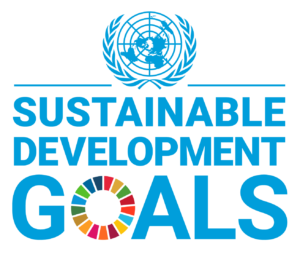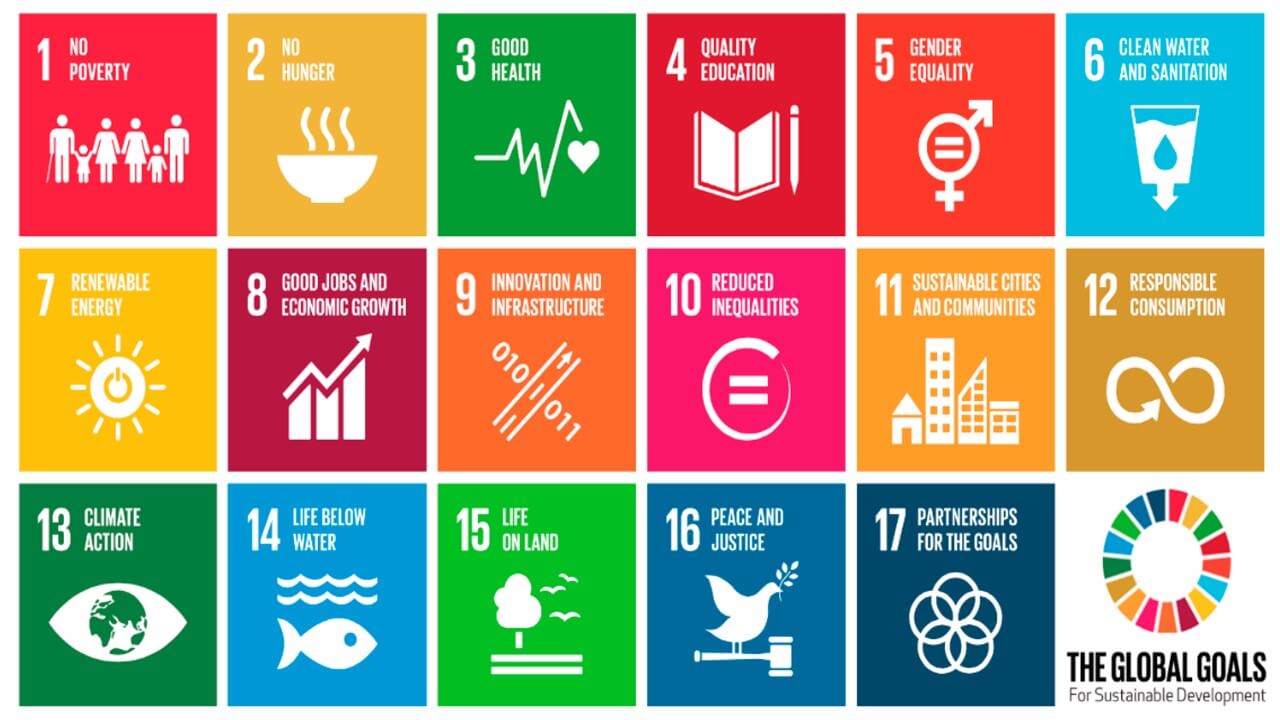
sustainable development
Anchored with UN SDGs, AGA join the green evolution to STOP CLIMATE CHANGE from further change
allied green Ammonia
contributions to the United Nations
Anchored with the United Nations Sustainable Development Goals, AGA’s sustainability is represented at every level of our governance structure. We are stepping up our environmental ambitions through our Green Ammonia project in Australia’s Northern Territory and shaping them to contribute to the UN Sustainable Development Goals.

Green Ammonia is one of the future fuels, and our project places the country at the forefront of the ecological transition. Australia may soon be a global supplier of one of the future fuels. Demand for Green Ammonia is expected to grow as the world seeks to transition to net-zero carbon emission by 2050.

Our contribution to global sustainability goals
The 17 Sustainable Development Goals (SDGs) of Agenda 2030 are the global target framework for sustainable development. We focus our commitment on all those SDGs which can be significantly impacted by our projects and business activity in Australia. Many of these SDGs are part of the vision and mission of AGA, and we are committed to pioneering investment and development to accelerate Australia’s sustainable and clean energy production.
How did the idea start?
sustainable development
The report, “Our Common Future” published in 1987 by the World Commission on Environment and Development of the UNO defines sustainable development as the “development that meets the needs of the present without compromising the ability of future generations to meet their own needs, (Hufnagel, et al, 2020)”.
Precisely, sustainable development is a way of organizing society to exist in the long term. This means considering both the imperatives present and those of the future, such as preserving the environment and natural resources or social and economic equity (UNO, 2020).


The health of ecosystems on which we and all other species depend is deteriorating more rapidly than ever. We are eroding the very foundations of our economies, livelihoods, food security, health and quality of life worldwide.
Sir Robert Watson (Chair – IPBES)
Sustainable Development Goals
What are Sustainable Development Goals?
The SUSTAINABLE DEVELOPMENT GOALS (GLOBAL GOALS) are a call from the UNITED NATION to all countries worldwide to address the significant challenges facing humanity and ensure that all people and countries around the world have the same opportunities to live a better life without compromising our planet. The United Nations has established 17 sustainable development goals. These goals are interrelated and can be summed into the following:
-
Eradicate poverty and hunger, guaranteeing a healthy life
-
Universalize access to essential services such as water, sanitation, and sustainable energy
-
Support the generation of development opportunities through inclusive education and decent work
-
Foster innovation and resilient infrastructure, creating communities and cities able to produce and consume sustainably
-
Reduce inequality in the world, especially that concerning gender
-
Care for the environment combating climate change and protecting the oceans and land ecosystems
-
Promote collaboration between different social agents to create a climate of peace and sustainable development


How Sustainable Development Becomes Relevant?
The industrial revolution is connected to the rise of the idea of sustainable development. From the second half of the 19th century, Western societies discovered that their economic and industrial activities had a significant impact on the environment and the social balance. Several ecological and social crises took place globally and raised awareness that a more sustainable model was needed.
By the twenty-first century, humanity has fallen into the mess of global problems (into a worldwide ecological, health, and economic crisis), which endanger not only its welfare, peace, and development but its survival and mere existence as well. It is the time of uniting and addressing the issues of common concern; however, humanity has reached this era torn to 195 independent national states without having an authorized global organization that would efficiently represent the common interests of society.
How To Achieve Sustainable Development Goals?
Many of the challenges facing humanity today, such as climate change, health, and economic crisis, water scarcity, inequality, and hunger, can only be resolved globally by promoting sustainable development goals. AGAPL is fully committed to social progress, environmental balance, and economic growth.
The United Nations has approved the 2030 Agenda, a sustainable development roadmap, which contains the Sustainable Development Goals, a call to action to protect the planet and guarantee the global security of people. These shared goals require the active involvement of individuals, businesses, administrations, and countries globally.
We focus our commitment on all those SDGs which can be significantly impacted by our projects and business activity in Australia. Many of these SDGs are part of the vision and mission of AGA, and we are committed to pioneering investment and development to accelerate Australia’s sustainable and clean energy production.

Knowledge To Change The World
4 PILLARS OF SUSTAINABLE DEVELOPMENT
The principle of the four pillars of sustainability states that for complete sustainability problems to be solved, all four pillars of sustainability need to be maintained. Although in some cases these may overlap, it is essential to identify the specific type of green business to focus on, as the four classes present unique characteristics. Companies need to make a strategic decision to incorporate the chosen approach into the policies and procedures effectively.
HUMAN SUSTAINABILITY
Human sustainability aims to maintain and improve the human capital in society. Investments in the health and education systems, access to services, nutrition, knowledge, and skills are all programs under the umbrella of human sustainability. In the context of business, Human sustainability encompasses the development of skills and human capacity to support the organization’s functions and sustainability and promote the well-being of communities and society.
SOCIAL SUSTAINABILITY
Social sustainability aims to preserve social capital by investing and creating services that constitute the framework of our society. The concept accommodates a larger view of the world about communities, cultures, and globalization. It means preserving future generations by acknowledging that what we do can impact others and the world. Social sustainability focuses on maintaining and improving social quality with concepts such as cohesion, reciprocity, honesty, and the importance of relationships.
ENVIRONMENTAL SUSTAINABILITY
Environmental sustainability aims to improve human welfare by protecting natural capital (e.g., land, air, water, minerals, etc.). Initiatives and programs are defined as environmentally sustainable when they ensure that the population’s needs are met without the risk of compromising the needs of future generations. Environmental sustainability emphasizes how businesses can achieve positive economic outcomes without harming the environment in the short or long term. An environmentally sustainable business seeks to integrate all four sustainability pillars, and to reach this aim, each one needs to be treated equally.
ECONOMIC SUSTAINABILITY
Economic sustainability aims to maintain the capital intact. If social sustainability focuses on improving social equality, economic sustainability seeks to enhance the standard of living. In business, it refers to the efficient use of assets to maintain company profitability over time. As stated by the UK Government (Annual Report 2000, January 2001): “Maintaining high and stable levels of economic growth is one of the key objectives of sustainable development. Abandoning economic growth is not an option. But sustainable development is more than just economic growth. The quality of growth matters as well as the quantity.”
